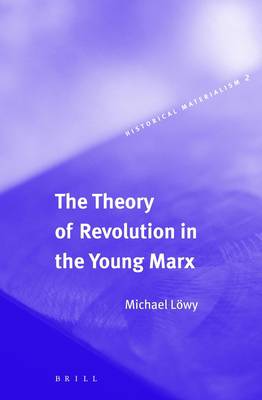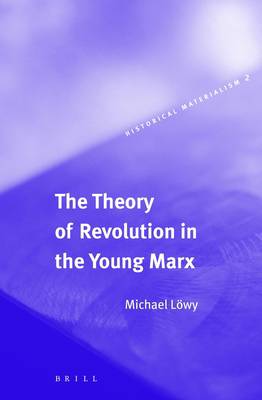
- Afhalen na 1 uur in een winkel met voorraad
- Gratis thuislevering in België vanaf € 30
- Ruim aanbod met 7 miljoen producten
- Afhalen na 1 uur in een winkel met voorraad
- Gratis thuislevering in België vanaf € 30
- Ruim aanbod met 7 miljoen producten
Zoeken
Omschrijving
This book proposes a Marxist analysis of young Marx's intellectual evolution, from left neo-Hegelianism to his new philosophy of praxis. It distinguishes itself from most other books on the early Marx by its object - the theory of (proletarian) revolutionary self-emancipation - and its method: to understand the movement of Marx's political and philosophical ideas in relation to the most radical currents in the labour movement of his time (beginning with Chartism and the uprising of the Silesian weavers in 1844). The central theoretical argument of the author is that Marx's philosophy of praxis - first formulated in the Thesis on Feuerbach - is at the same time the founding stone of a new world view, and the methodological basis for the theory of revolutionary self-emancipation.
For the paperback version of this title, please go to http: //www.cbsd.com/detail.aspx?Inventory=17323
For the paperback version of this title, please go to http: //www.cbsd.com/detail.aspx?Inventory=17323
Specificaties
Betrokkenen
- Auteur(s):
- Uitgeverij:
Inhoud
- Aantal bladzijden:
- 216
- Taal:
- Engels
- Reeks:
- Reeksnummer:
- nr. 2
Eigenschappen
- Productcode (EAN):
- 9789004129016
- Verschijningsdatum:
- 13/12/2002
- Uitvoering:
- Hardcover
- Formaat:
- Genaaid
- Afmetingen:
- 164 mm x 245 mm
- Gewicht:
- 517 g

Alleen bij Standaard Boekhandel
+ 283 punten op je klantenkaart van Standaard Boekhandel
Beoordelingen
We publiceren alleen reviews die voldoen aan de voorwaarden voor reviews. Bekijk onze voorwaarden voor reviews.








